Learn how to reduce food waste with these five simple kitchen hacks. These money-saving tips will help you with your weekly meal prep and show you how to preserve produce for maximum freshness!
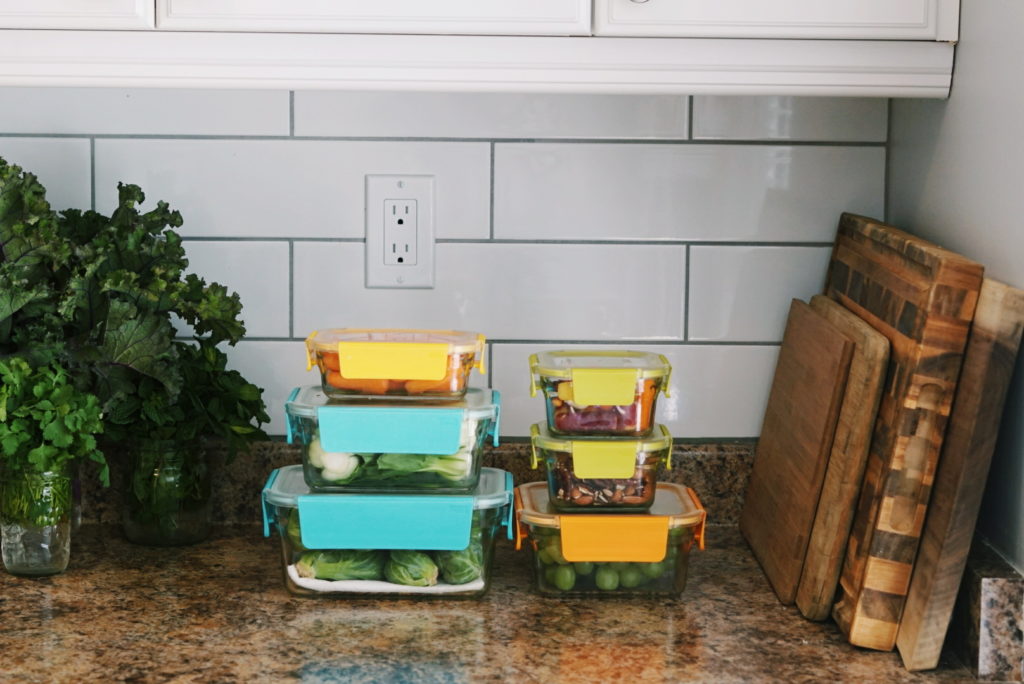
Food waste is the worst – this is something I think most people can agree on. When you look at the statistics, worldwide we waste about ⅓ of the food produced for human consumption. This is in large a systematic problem in the Food and Agriculture Industry before the food even gets to our homes. But it is also a problem within our homes. We can start reducing food waste within our homes today! We just need a little knowledge on how to prepare and spend a little time planning ahead. Here are five simple kitchen hacks on how to reduce produce waste.
1. Plan Ahead!
The number one, most effective thing we can to do reduce food waste in our homes is to plan our meals ahead. This can be as simple as writing a weekly menu and only buying what you need for those meals or buying just enough and prepping once you get home. Buy only what you need for about three days. When you get home, chop what you bought and store in glass containers.
Do not wash your produce prior to storing it as the added moisture will cause rotting faster (wash only when you plan on fully drying before storing). Only cut enough for two to three days as chopped produce will start to go bad quickly. When you are ready to cook, look at what produce you have and base your meals around those items. This does not extend the life of produce, but will reduce your food waste and save you money and time cooking.
2. No More Sad, Wilted Leafy Greens
When bringing home kale, chard, mustard greens, or other long stemmed greens: First, trim the end of the stem on an angle, then place in a vase or large mason jar with water. Keep on the kitchen counter out of sunlight (for two to three days) or in the fridge (for four to five days). Change the water daily. This extends the life of greens and keeps them looking fresh. Bonus Points: this makes a beautiful, earthy bouquet.
3. No More Smelly, Rotten Baby Greens
When bringing home baby greens in clamshell containers: First, remove greens from container, poke a few small holes in the lid and side of containers, add dry paper towel to bottom of container, add baby greens back in, top with another paper towel, and then put lid back on container. The holes let moisture buildup release and the paper towel absorbs any moisture that doesn’t escape through the holes. If you buy your baby greens in a bag, just add a paper towel on either side of the bag to absorb extra moisture.
4. Make Fresh Herbs Last
For Tender Herbs (like cilantro and parsley): Trim stems and place them in a small jar with water. Cover jar and herbs with a plastic bag and secure it with an elastic band. Keep herbs in the refrigerator and change the water every other day.
For Hardy Herbs (like rosemary and thyme): Roll herbs in a dry paper towel and store in a re-sealable bag with most of the air pushed out.
For Basil: Follow the same steps as for tender herbs, but store on your counter at room temperature. Storing in the refrigerator will cause the basil leaves to turn black. Store out of direct sunlight and change water every other day.
5. No More Forgotten and Rotten Foods
Keep your fridge tidy and not too full. Do this by:
- Keeping prepped vegetables and leftovers in glass containers lined up at the front of your fridge.
- Have a small bowl to keep miscellaneous items such as half avocados or lemons.
- Follow the “First In, First Out” rule. Put new perishables in behind old perishables and always use older perishables first.
- Bonus Fridge Organization Tip: Never store perishables or produce in the fridge door. Temperatures at the door fluctuate when opened which will make food spoil quicker. Try to avoid keeping leafy greens and herbs near the back of the fridge as the temperature is often too cold.
If you still end up having produce that is about to go bad and you have no use for, you can make a quick pickle, simple steam, or bake then freeze, or save in a freezer bag to make vegetable stock out of later.
Good luck reducing your produce food waste. If you have any money-saving tips I haven’t mentioned, I would love to hear them in the comments or on Instagram @morganshupe.







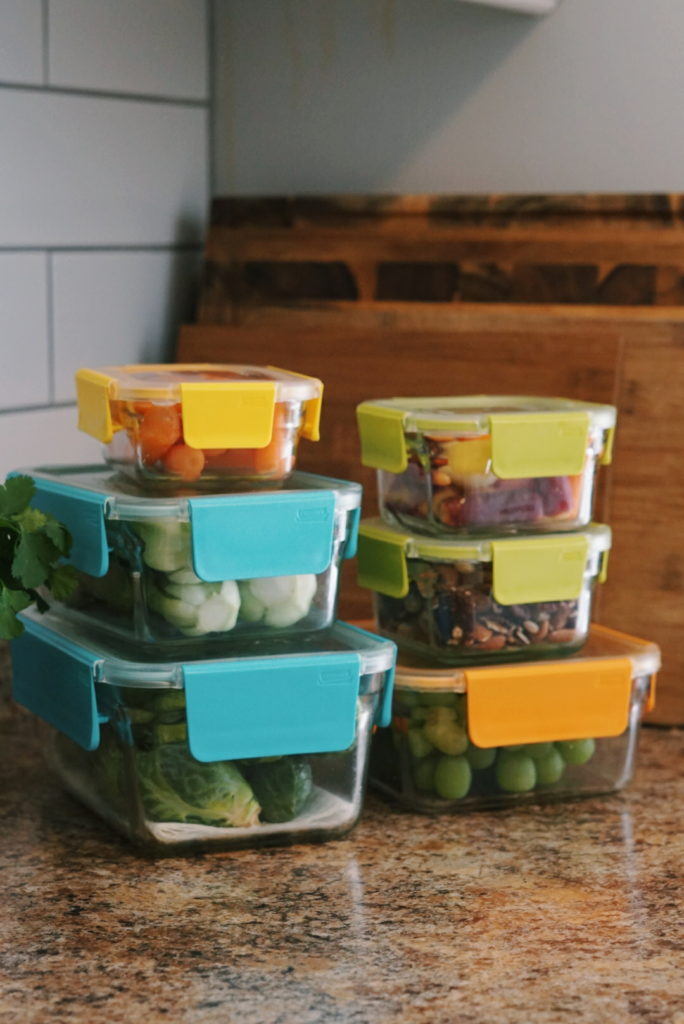
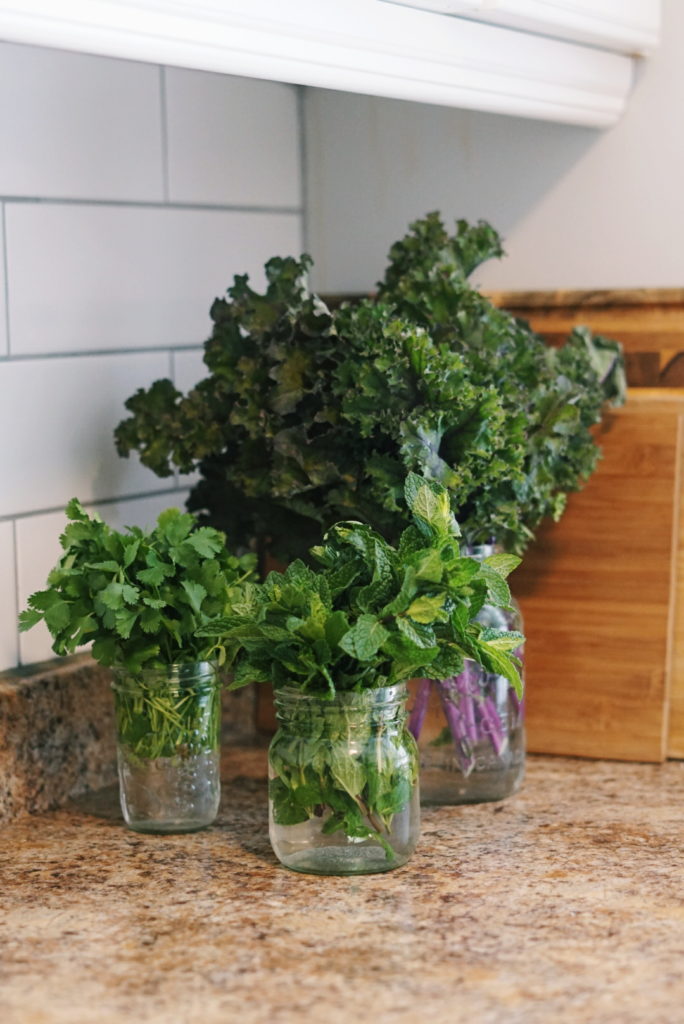
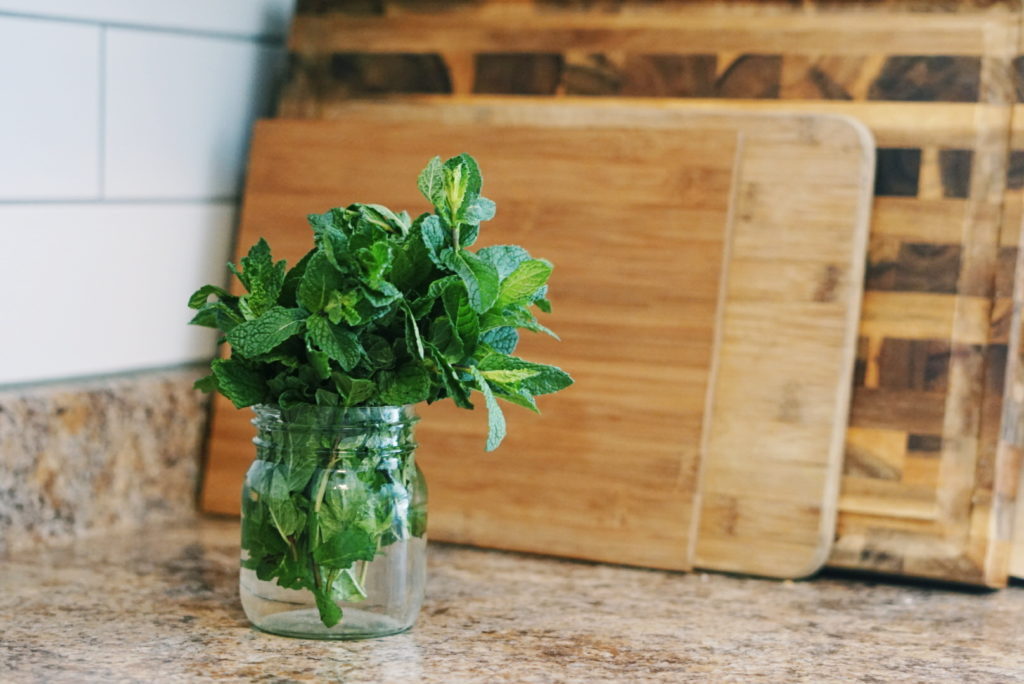
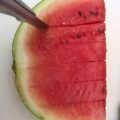
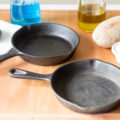
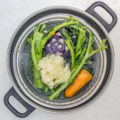
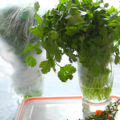

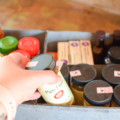



Comments